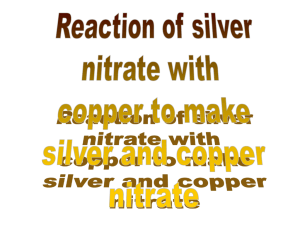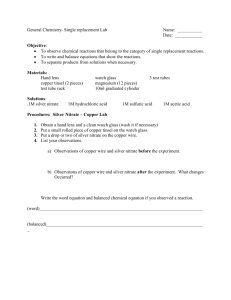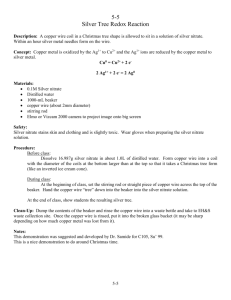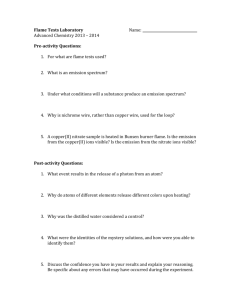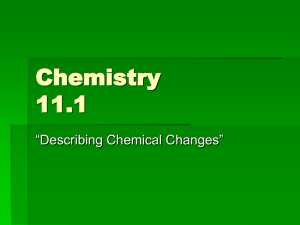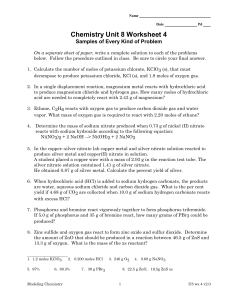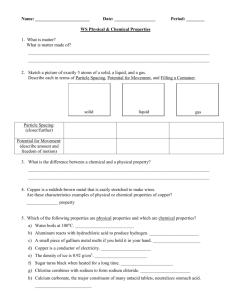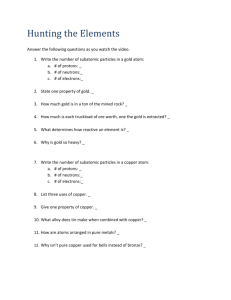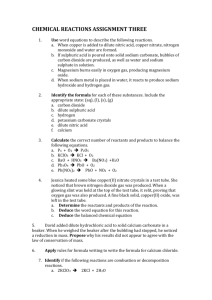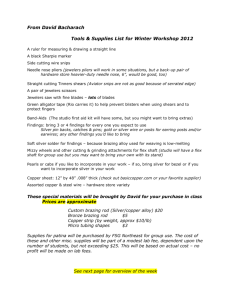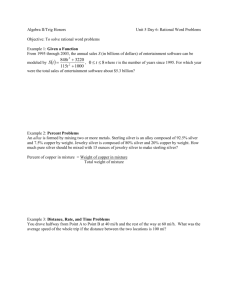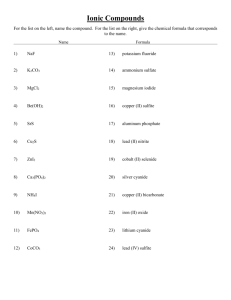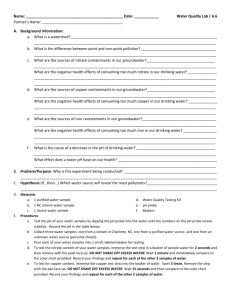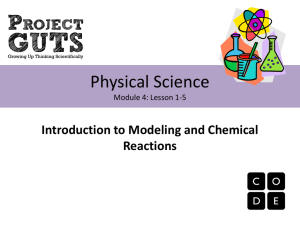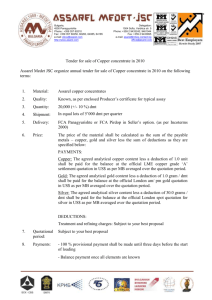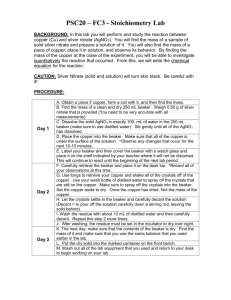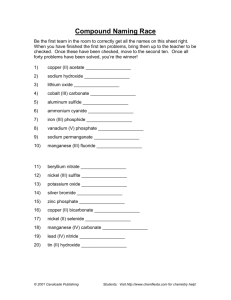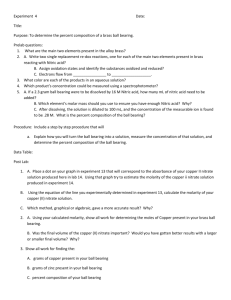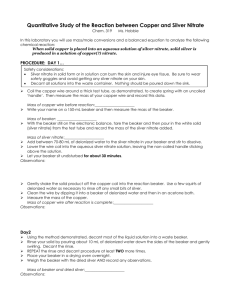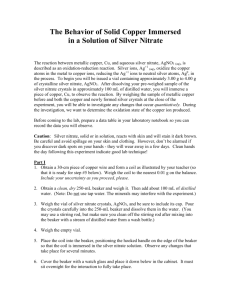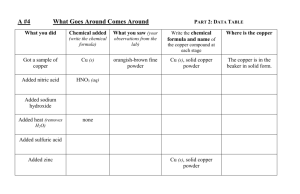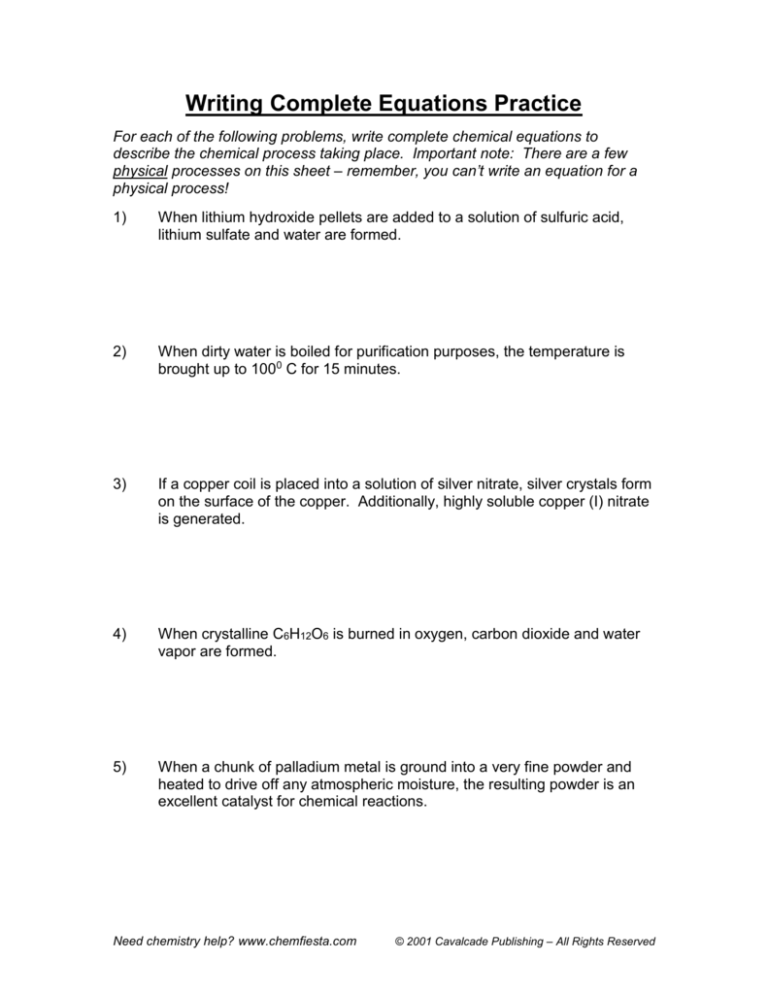
Writing Complete Equations Practice
For each of the following problems, write complete chemical equations to
describe the chemical process taking place. Important note: There are a few
physical processes on this sheet – remember, you can’t write an equation for a
physical process!
1)
When lithium hydroxide pellets are added to a solution of sulfuric acid,
lithium sulfate and water are formed.
2)
When dirty water is boiled for purification purposes, the temperature is
brought up to 1000 C for 15 minutes.
3)
If a copper coil is placed into a solution of silver nitrate, silver crystals form
on the surface of the copper. Additionally, highly soluble copper (I) nitrate
is generated.
4)
When crystalline C6H12O6 is burned in oxygen, carbon dioxide and water
vapor are formed.
5)
When a chunk of palladium metal is ground into a very fine powder and
heated to drive off any atmospheric moisture, the resulting powder is an
excellent catalyst for chemical reactions.
Need chemistry help? www.chemfiesta.com
© 2001 Cavalcade Publishing – All Rights Reserved
Writing Complete Equations Practice - Key
For each of the following problems, write complete chemical equations to
describe the chemical process taking place. Important note: There are a few
physical processes on this sheet – remember, you can’t write an equation for a
physical process!
1)
When lithium hydroxide pellets are added to a solution of sulfuric acid,
lithium sulfate and water are formed.
2 LiOH(s) + H2SO4(aq) Li2SO4(aq) + 2 H2O(l)
2)
When dirty water is boiled for purification purposes, the temperature is
brought up to 1000 C for 15 minutes.
No equation is needed, as boiling is a physical process.
3)
If a copper coil is placed into a solution of silver nitrate, silver crystals form
on the surface of the copper. Additionally, highly soluble copper (I) nitrate
is generated.
Cu(s) + AgNO3(aq) Ag(s) + CuNO3(aq)
4)
When crystalline C6H12O6 is burned in oxygen, carbon dioxide and water
vapor are formed.
C6H12O6(s) + 6 O2(g) 6 CO2(g) + 6 H2O(g)
5)
When a chunk of palladium metal is ground into a very fine powder and
heated to drive off any atmospheric moisture, the resulting powder is an
excellent catalyst for chemical reactions.
Both grinding and heating are physical processes. Even if the
atmospheric moisture is mentioned, boiling is still a physical
process. No equation is needed.
Need chemistry help? www.chemfiesta.com
© 2001 Cavalcade Publishing – All Rights Reserved

